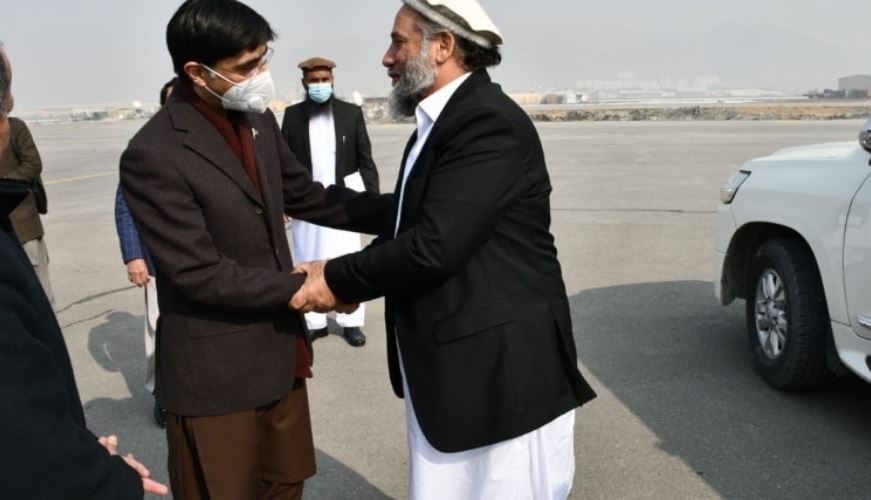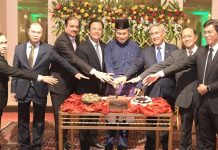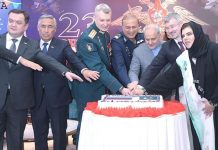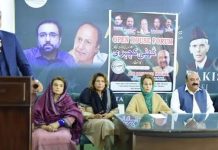ISLAMABAD, JAN 29: A high-level inter-ministerial delegation led by National Security Adviser (NSA) Moeed Yusuf arrived in Kabul on Saturday for talks on bilateral matters of mutual interest, focusing on Pakistan’s efforts to avert a humanitarian crisis in the country.
The NSA and his delegation were received by Nooruddin Azizi, the acting minister for commerce and industry, at Hamid Karzai International Airport, according to the Pakistan Embassy. Senior officials, including Pakistan’s Special Representative for Afghanistan Mohammad Sadiq, were also part of the delegation.
Pakistan Ambassador to Afghanistan Mansoor Ahmad Khan said the NSA had a “productive meeting” with Afghanistan’s Foreign Minister Amir Khan Muttaqi to kick off the visit. “[He] will have multiple official meetings to strengthen humanitarian and economic engagement,” he tweeted.
Yusuf was earlier scheduled to travel to Kabul on January 18 for a two-day visit but the trip was delayed due to bad weather.
The NSA is steering the Afghanistan Inter-Ministerial Coordination Cell (AICC) to channel Pakistan’s humanitarian and economic assistance to Afghanistan in a manner that helps the Afghan interim authorities in combatting their key challenges while adhering to the requirements of the UN and international sanctions.
According to officials of relevant ministries, the purpose of the visit was to ascertain the humanitarian, economic and development needs of Afghanistan in various sectors. The AICC in the past few weeks was working tirelessly on plans of assistance to Afghanistan.
Earlier, Afghanistan state Bakhtar news agency had reported: “Pakistan’s national security adviser is to discuss border issues, trade and economic ties with Islamic Emirate of Afghanistan (IEA) officials during his visit to Kabul.”
The main sectors of Pakistan’s cooperation with Afghanistan include health, higher education, provision of humanitarian assistance, and enhancement of trade/business contacts.
The Afghan ministers for health, higher education, finance and commerce undertook visits to Islamabad in recent months for strengthening collaboration in these areas. The plans for assistance in these areas are likely to be finalised during the NSA’s visit.
One key challenge for Afghanistan’s Taliban rulers is the exodus of skilled human resources from the country.
In this regard, Prime Minister Imran Khan’s recent statement about “exporting qualified and trained manpower” to Afghanistan was apparently misconstrued and sparked a reaction on Afghan social media.
Relevant Pakistani officials argue that Pakistan was actually contemplating opportunities for Afghan refugees who were educated and trained in Pakistan to serve in Afghanistan’s public and private sectors to fill the gap in the country’s human resource requirements.
Apart from the bilateral channel, Pakistan has also been facilitating assistance to Afghanistan through international organisations, particularly the UN and Organisation of Islamic Cooperation (OIC). The OIC foreign ministers’ special session in Islamabad on December 19, 2021, and the decisions to establish an OIC Trust Fund as well as appoint a special envoy on Afghanistan to oversee humanitarian and economic engagement are reflective of Islamabad’s efforts to support Afghanistan at this crucial time.
Border tensions
NSA Yusuf travelled to Kabul at a time of tensions along the Pak-Afghan border.
Earlier this month, a video had surfaced on social media purportedly showing Taliban fighters uprooting a portion of the fence along the Pak-Afghan border, claiming that the fence had been erected inside Afghan territory.
It had drawn a response from Interior Minister Sheikh Rashid, who said that the remaining fencing of the frontier would be completed with the consent of the neighbouring country, stating that “they are our brothers.”
However, Inter-Services Public Relations (ISPR) Director General Maj Gen Babar Iftikhar had said that fencing of the Pak-Afghan border would continue as planned, adding that blood of martyred soldiers had been spilt while erecting the fence.
Yusuf’s visit is thought to be an opportunity for both sides to review the situation along the nearly 2,600-kilometre border and other security-related issues.
It is pertinent to mention that Yusuf, in a recent briefing to an NA body, had remarked that Afghan soil was still being used against Pakistan. However, he also maintained that the Taliban government was maintaining cordial ties with Pakistan and recent border fencing troubles were not part of their policy.
There is a possibility that Yusuf could discuss with the Afghan Taliban the issue of a spike in attacks by the banned Tehreek-i-Taliban Pakistan in parts of the country after the group last month declined to extend a ceasefire.

















